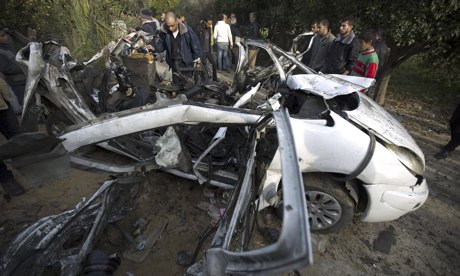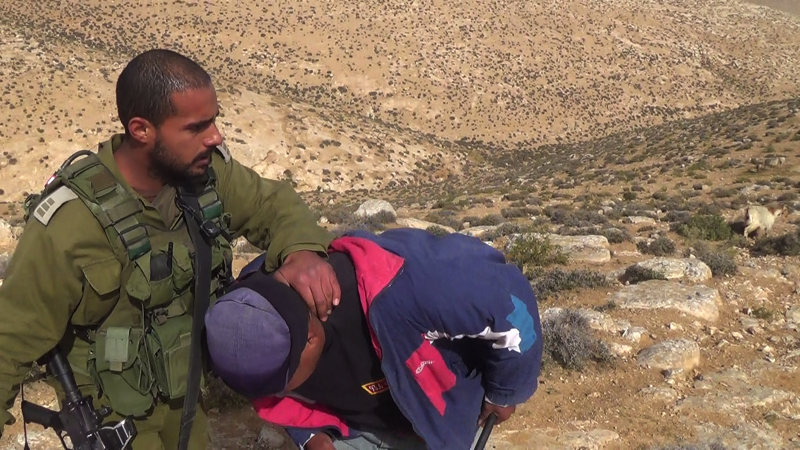Category: In the Media
-
Israeli warplanes kill member of Palestinian armed group and his cousin in Beit Hanoun, Gaza
23rd January 2014 | Palestinian Centre for Human Rights | Gaza, Occupied Palestine In an extra-judicial execution attempt, on Wednesday 22 January 2014, an Israeli drone fired a missile at a civilian car in Beith Hanoun, Northern Gaza. As a result, both passengers, a member of a Palestinian armed group and his cousin, were killed…
-
Six arrests in three days in South Hebron Hills
January 20th, 2014 | Operation Dove | Hebron, Occupied Palestine Between January 18-20, four Palestinians and two Operation Dove (OD) volunteers were arrested by the Israeli police and army while Palestinian shepherds were grazing their flocks. On January 18 at 1:04 p.m. seven settlers came out from the illegal outpost of Havat Ma’on (Hill 833), entered…
-
VIDEO: Protesters in Gaza’s “buffer zone” under fire from Israeli forces
17th January 2014 | Institute for Middle East Understanding | Gaza, Occupied Palestine They are young, and they are fearless. In Gaza, a growing nonviolent movement, led predominantly by youth, is challenging Israel’s ongoing occupation of Palestinian lands in the so-called “buffer zone” — a unilaterally demarcated and militarily patrolled area that, according to Harvard researcher Sara…



